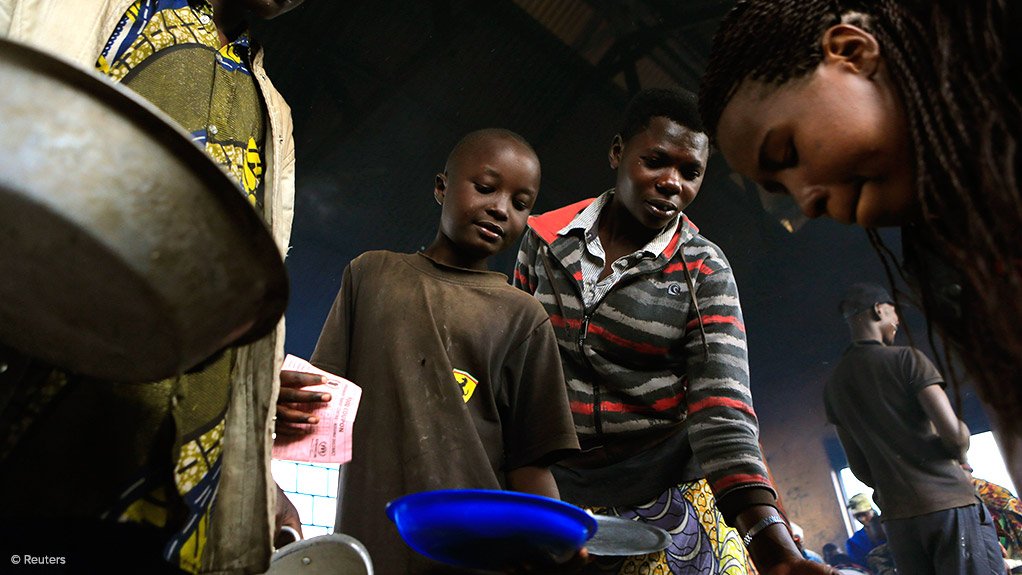South Africa was ranked third in the International Budget Partnership’s (IBP’s) 2015 Open Budget Index (OBI) survey, which measured governments’ budget transparency, citizen participation and independent oversight.
The survey, which measured 102 countries around the world, saw Sweden take first place, followed by New Zealand.
“Over the years, South Africa has consistently entrenched its reputation as a global leader in budget transparency. This is evidenced in the expansive budget information that is published for public analysis and scrutiny, as well as in its performance in international budget surveys,” the National Treasury said in a statement.
It added that the National Treasury used past survey results to identify gaps in budget transparency and informed measures and mechanisms to bridge those gaps.
As such, government had implemented several reforms between 2010 and this year, including the introduction of a new framework for strategic plans and annual performance plans, procurement reforms undertaken by the office of the chief procurement officer to enhance transparency in bidding for government contracts, and enhanced commitment of local government to engaging with civil society organisations, ensuring increased participation in the budget process.
South Africa ranked first in the OBI survey in 2010, and the 2015 ranking reflected that more emphasis should be placed on budget participation.
To further improve budget participation, the National Treasury would pursue other measures including continued support to civil society in its preparation of citizen-friendly publications about national budgets tabled in Parliament and a possible collaboration with civil society organisations that included looking into creating a data portal in the near future.
“South Africa remains committed to constantly improving the budget process to maintain its international reputation as a global leader in budget transparency and would continually seek to enhance the expansive information it provides to its citizens on how public resources are generated and used, with the aim of improving budget participation,” the National Treasury said.
Meanwhile, the survey found that 98 of the 102 countries surveyed lacked adequate systems for ensuring that public funds were used efficiently and effectively.
The 98 countries fell short on at least one of these pillars of accountability; while 32 fell short on all three. These included a number of countries that have consistently provided scant or no budget information at all, such as Algeria, Bolivia, Cambodia, China, Equatorial Guinea, Fiji, Iraq, Myanmar, Qatar and Saudi Arabia.
“The widespread lack of strong budget accountability systems pose a threat to the implementation of critical international agreements, such as the United Nations’ Sustainable Development Goals and the international agreement that is expected to be concluded at the 2015 Paris Climate Conference.
“The public needs access to budget information and opportunities to participate throughout the budget process. Coupled with oversight by legislatures and audit institutions, this contributes to a more accountable use of public money,” said IBP executive director Warren Krafchik.
A mere 24 countries – less than one in four – scored higher than 60 out of 100 on the OBI and were considered to have provided citizens with sufficient information to enable them to monitor the government’s use of public money.
Alarmingly, the remaining 78 countries that provided insufficient budget information were home to 68% of the world’s population. Seventeen of these countries provided scant or no budget information to their citizens.
However, the study found that budget transparency was generally improving – a finding consistent with previous reports.
The average OBI score increased to 45, with progress particularly robust among some countries and regions that were previously not as transparent, including the Kyrgyz Republic, Tunisia and Francophone West Africa.
Compounding the widespread lack of transparency was a similar lack of opportunities for public participation and oversight. With scores of 60 or less in this part of the survey, 95 of the 102 countries fell short in providing opportunities for public participation.
Further, the survey found that legislative research and analytic capacity, as well as quality assurance systems in most national audit bodies, were lacking, severely compromising the ability of oversight institutions to be effective guardians of the public purse.
Combining all three pillars, only four countries – Brazil, Norway, South Africa and the US – provided sufficient budget transparency, established sufficient opportunities for public participation and had strong legislatures and supreme audit institutions.
Meanwhile, the survey found that most of the least-transparent countries actually produced significant budget information for internal use and that major gains could be made at little cost by posting these documents on government websites.
“The means and mechanisms to establish these budget accountability pillars are readily at hand. Ultimately, advancing transparency, participation and oversight almost always comes down to a question of political will,” the IBP noted.
“Budget accountability can no longer be pushed aside as a technical concern of bureaucrats. With the amount of funds likely to be mobilised through the new international development goals alone, and potentially through climate change agreements, the world has an unprecedented opportunity to address poverty, inequality and other global challenges –but this will only happen if these resources are managed transparently and accountably,” Krafchik said.
EMAIL THIS ARTICLE SAVE THIS ARTICLE FEEDBACK
To subscribe email subscriptions@creamermedia.co.za or click here
To advertise email advertising@creamermedia.co.za or click here











